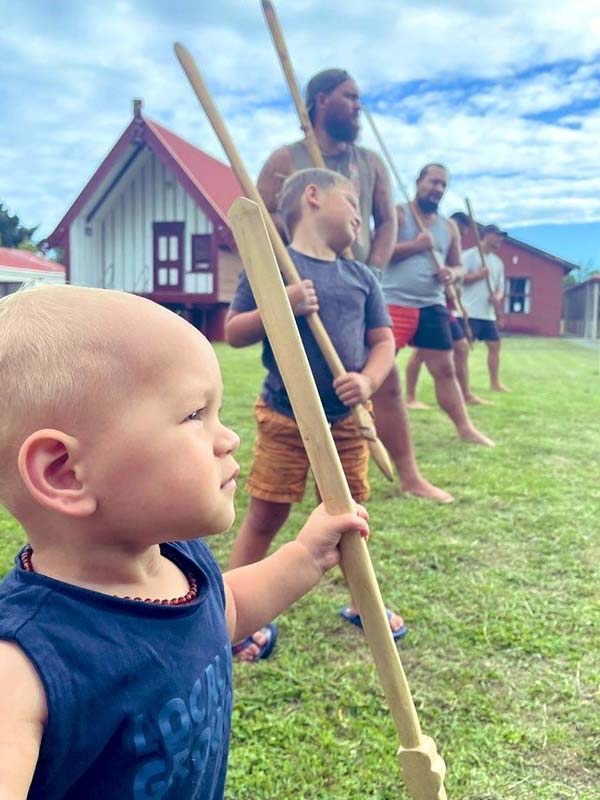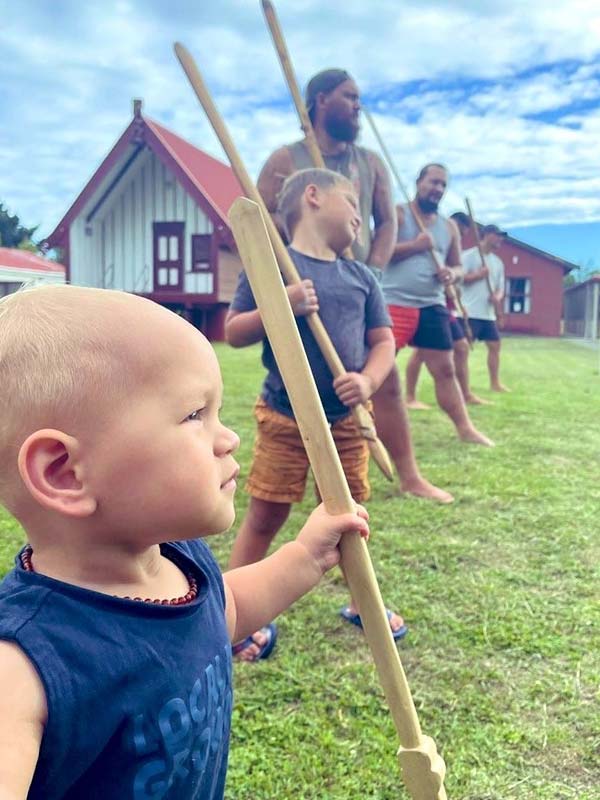
Mau rākau connects past, present and future

01 September 2022
When Hone Tamehana picks up his taiaha his thoughts go to his tūpuna who wielded it, as far back as 200 years ago.
Every Sunday, Hone, his three sons, and two mokopuna head to Pūtiki Marae in Whanganui to practise mau rākau – a martial art based on traditional Māori weapons like taiaha.
The marae holds a special place in his heart. As a young boy, he and his father would visit the marae every Sunday to train. Often he’d stand in the background and watch, trying to "soak up as much kōrero as possible".
Now, it’s his turn to pass on his knowledge. Maintaining tradition, Hone starts every practice with a ruruku or karakia.
E rere kau mai te Āwanui, Mai i te Kāhui maunga ki Tangaroa. Kō au te Āwa, kō te Āwa kō au. The river flows from the mountains to the sea. I am the river, the river is me.
Preserving the teachings for future generations
Hone’s Mokopuna, five-year-old Te Haeata and 18-month old Te Aewa o Te Rangi spend most of their time observing. Occasionally they pick up a taiaha and have a go joining in.
"Te Haeata has learned the first three movements and each time he’s there we take him through it, so the repetition becomes muscle memory," says Hone.
Coming together on their marae ātea provides a positive space for the family to connect with their tūpuna. They whakapapa to a number of great leaders including brothers Hōri Kīngi and Te Māwae Te Ānaua, as well as their nephew, the great warrior Te Rangihiwinui Te Keepa. Together, they are committed to preserving the teachings of mau rākau for future generations.
The style Hone practises originates from a settlement on the Whanganui River called Hiruhārama. It goes back generations – the same style his father and uncle learned when they were boys.
"This style connects us to the awa and we to it. Our movements make us fluid to the awa and movement of the pukeko within this realm of te ao wairua."
Pride and privilege
Hone’s three sons, Te Utupoto Haimona, Tamati Te Ariki and Matenga Mairangi, say it’s an honour to follow in their father’s footsteps.
"When you’re down at the marae and you’re in the zone, you know that you’re there for a purpose. You’re there for a reason... to uphold all that came before us," says Te Utupoto.
Tamati says being able to share the practice with his son makes him feel proud.
"It’s been passed down through our grandfathers, our uncles, my father, and now, being able to pass it on to my son... this taonga is going to continue to stay alive."













